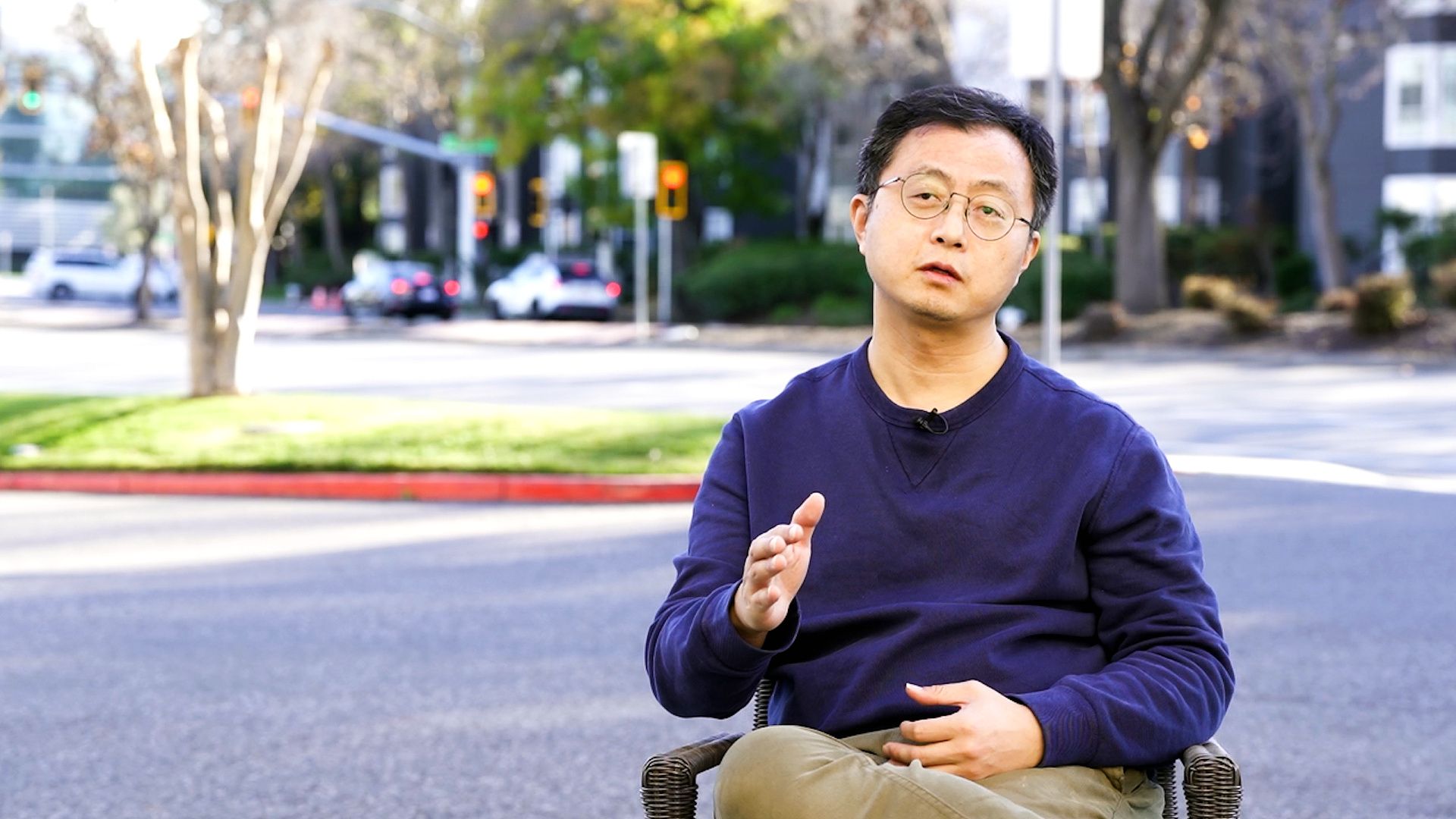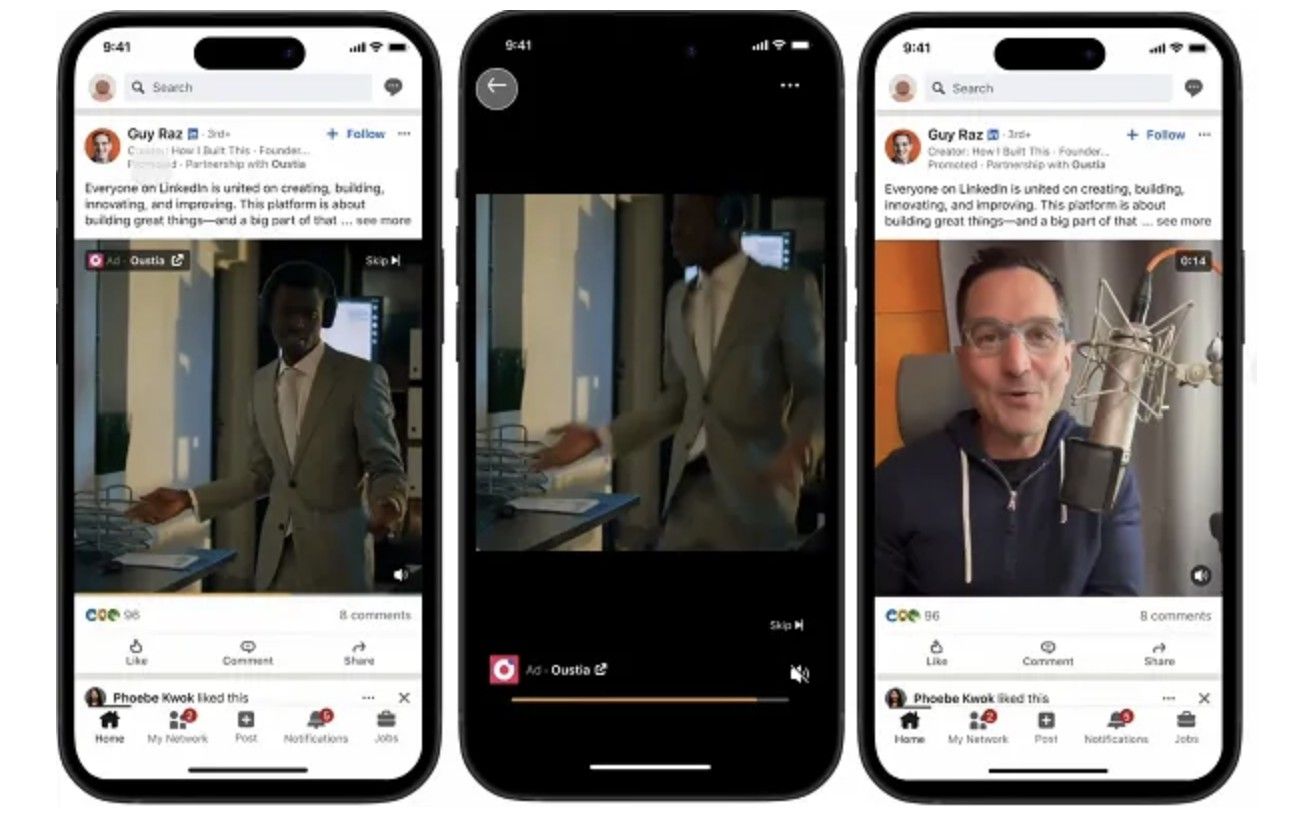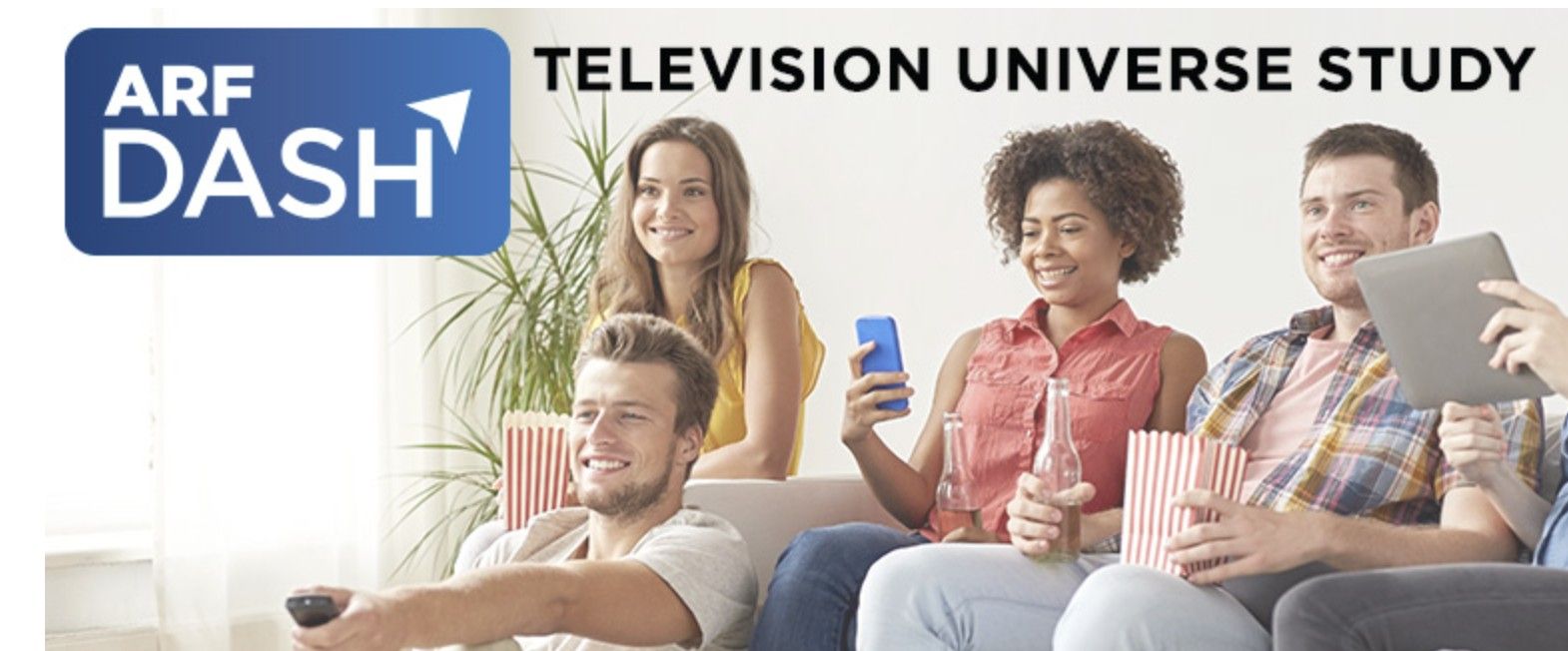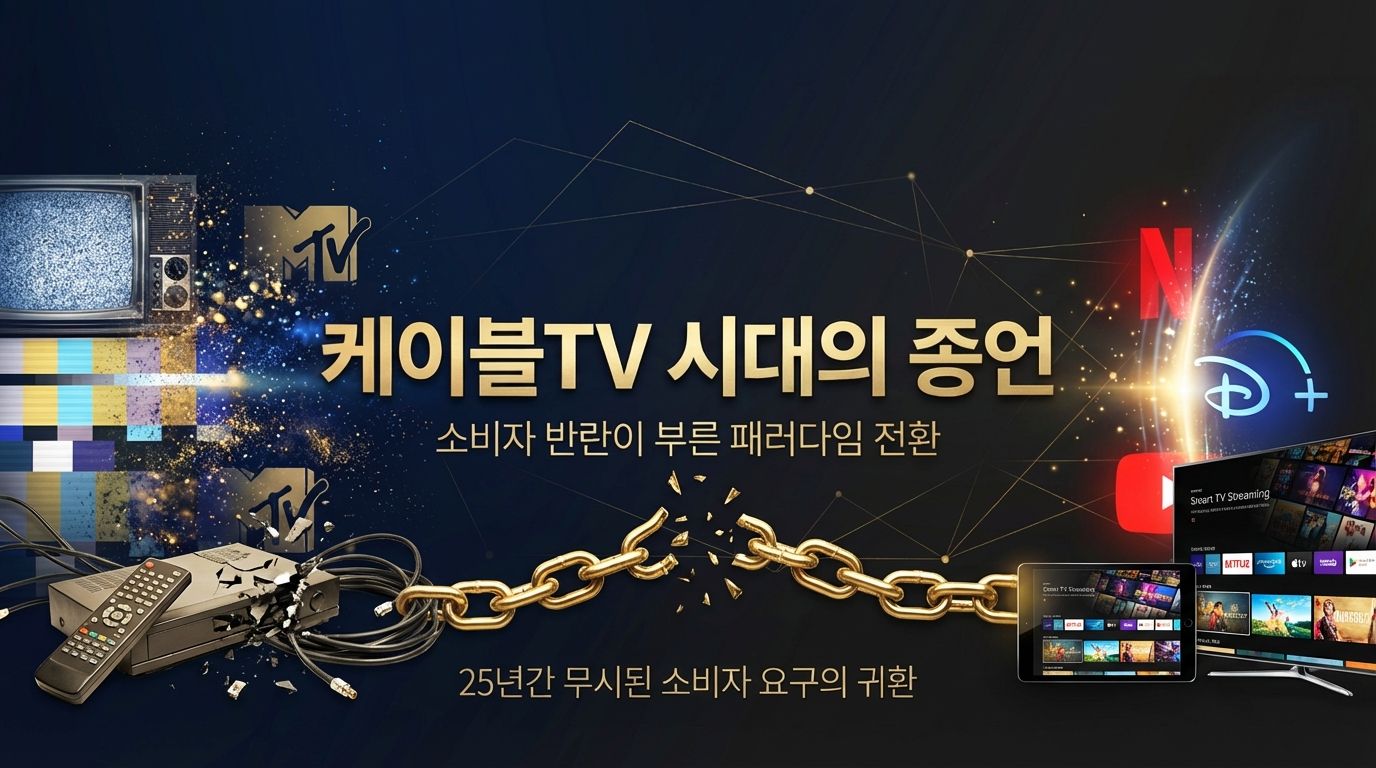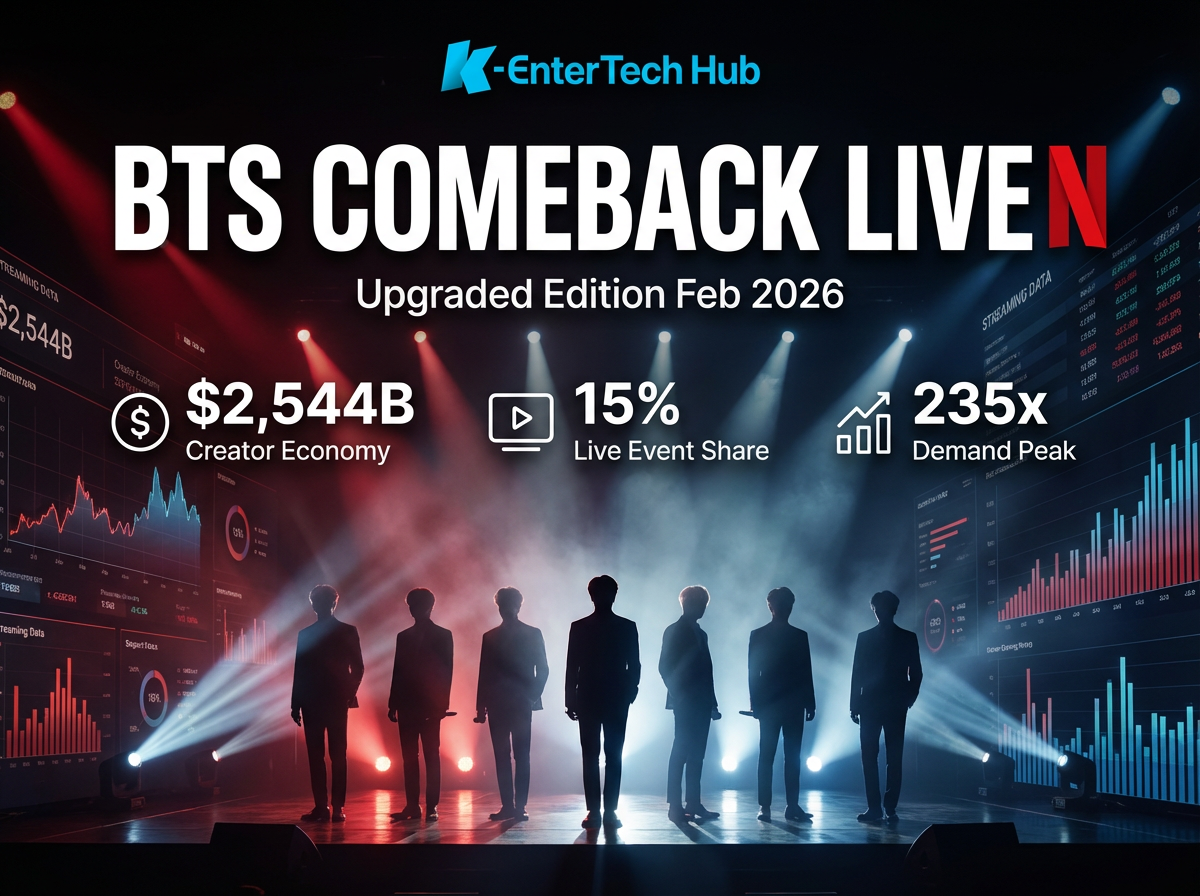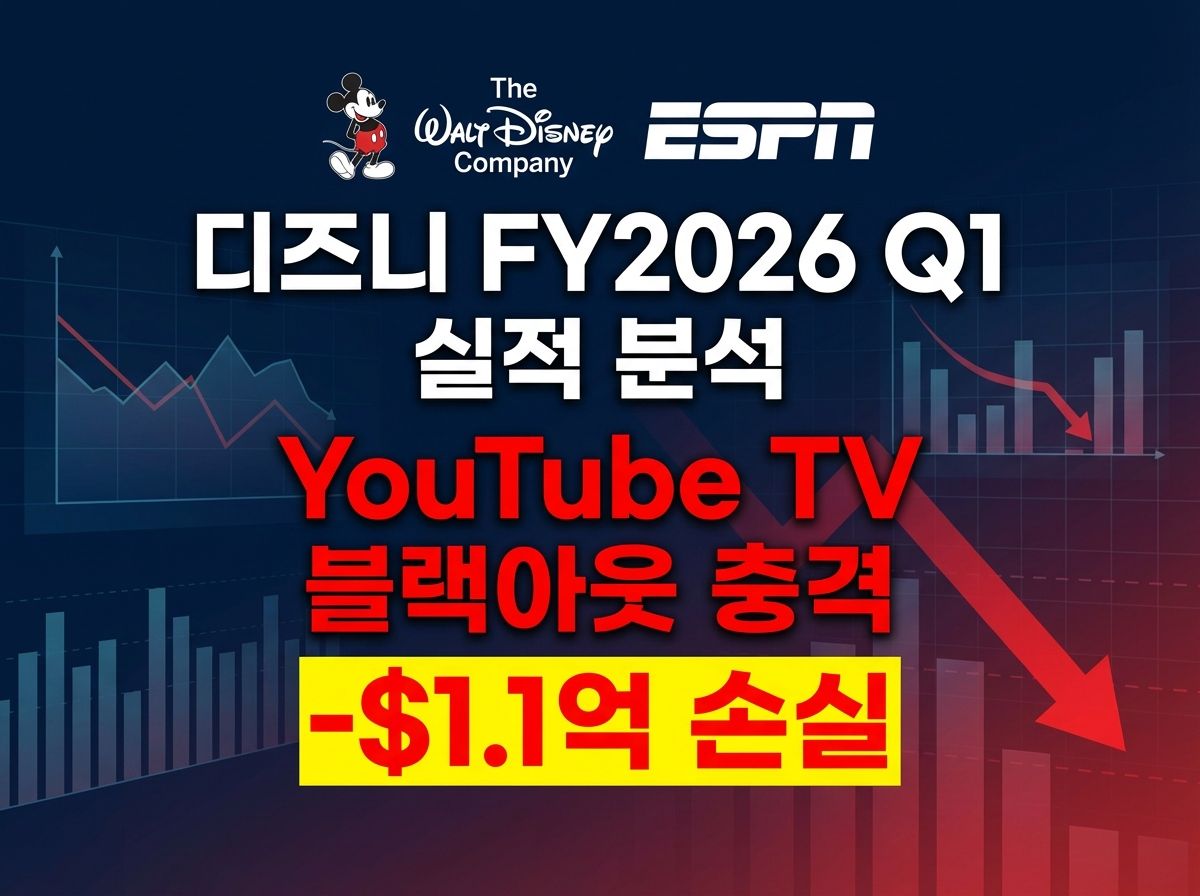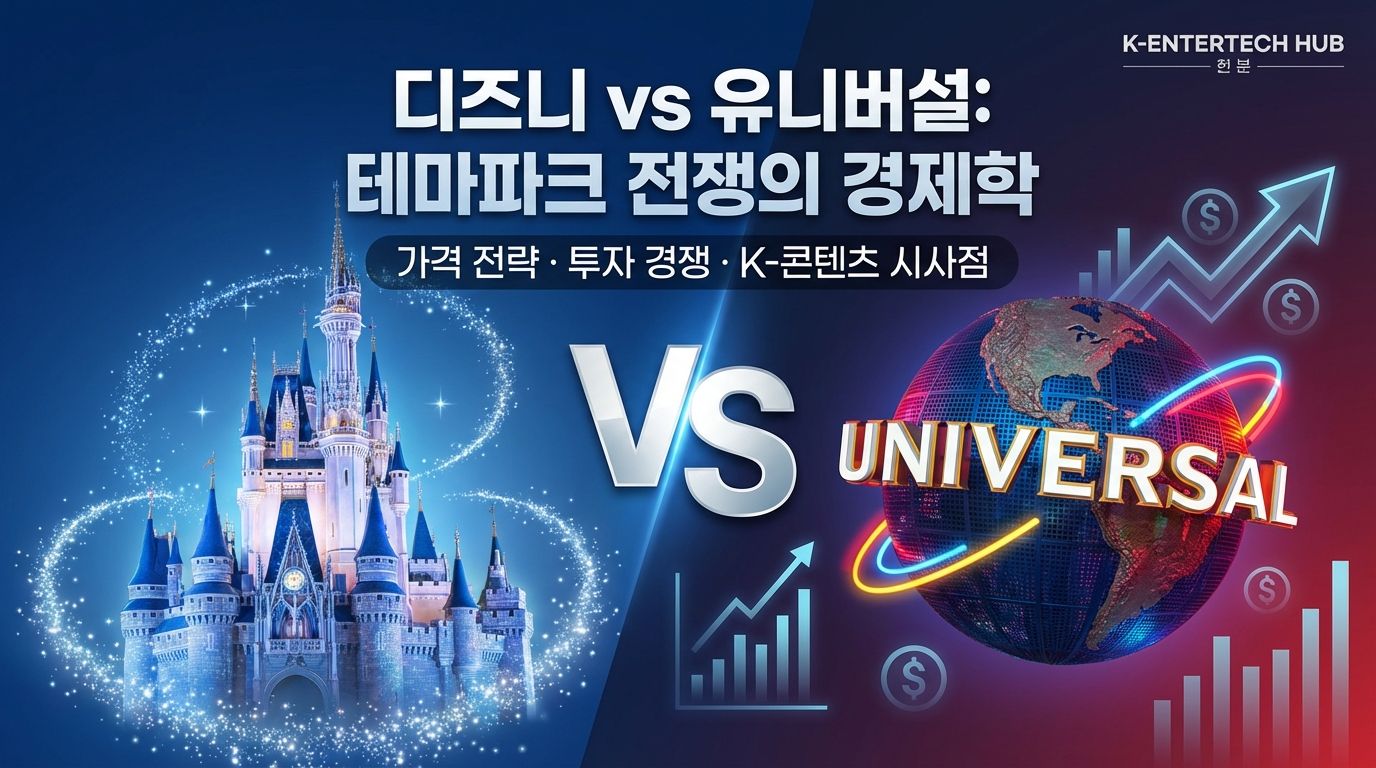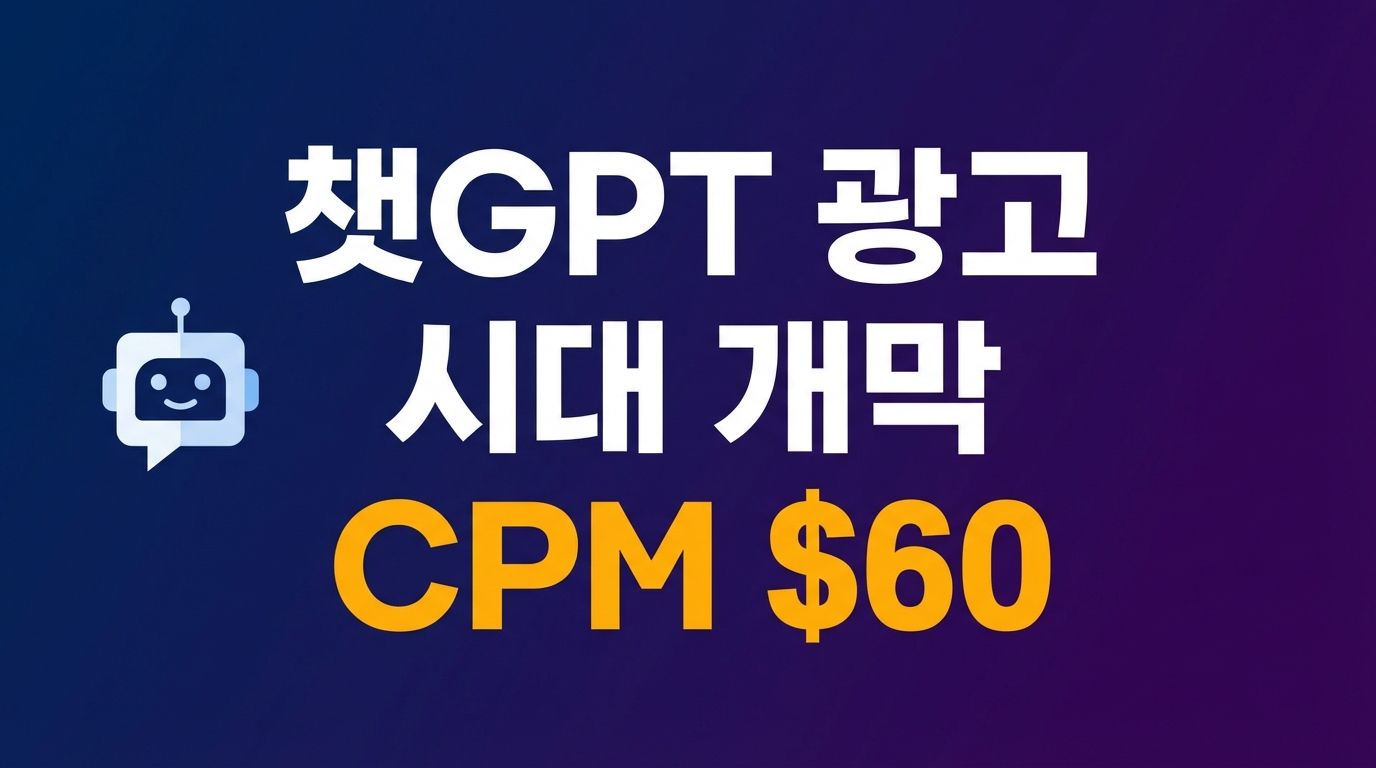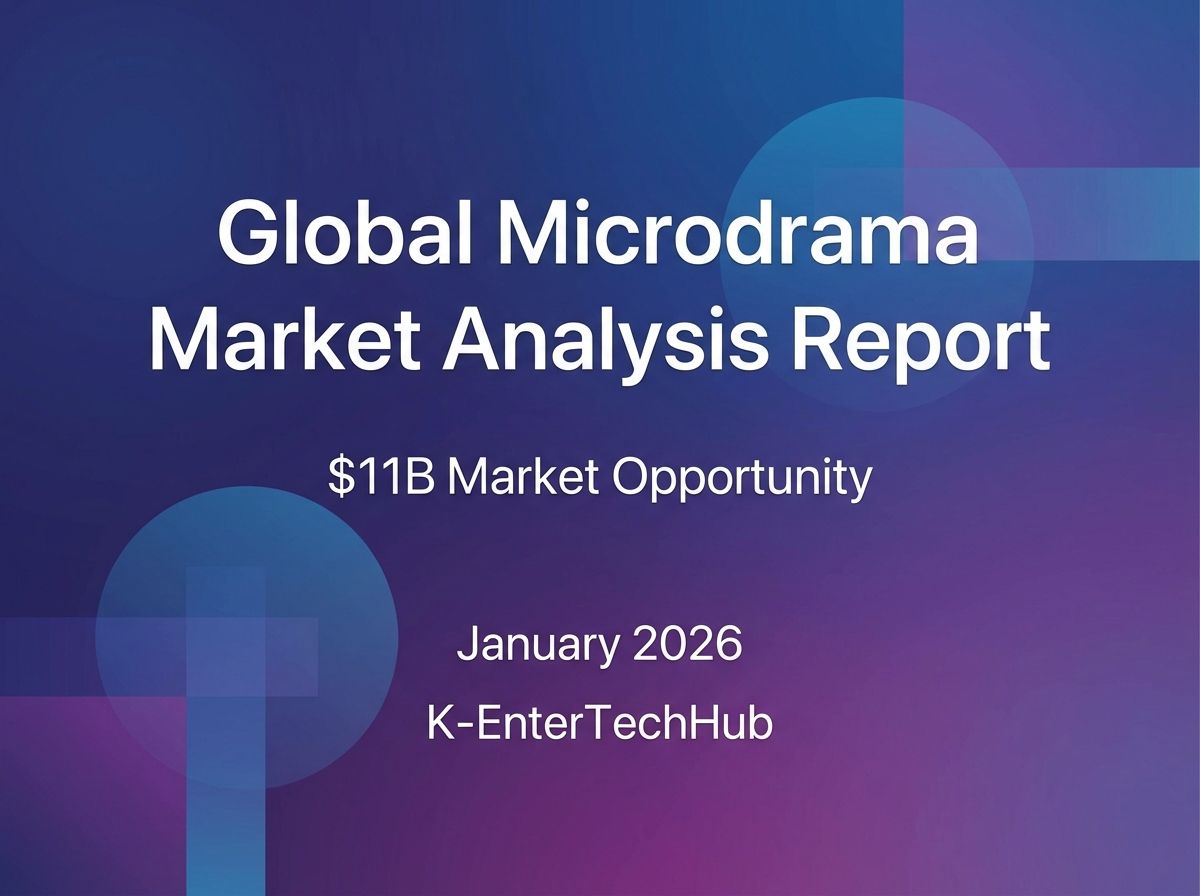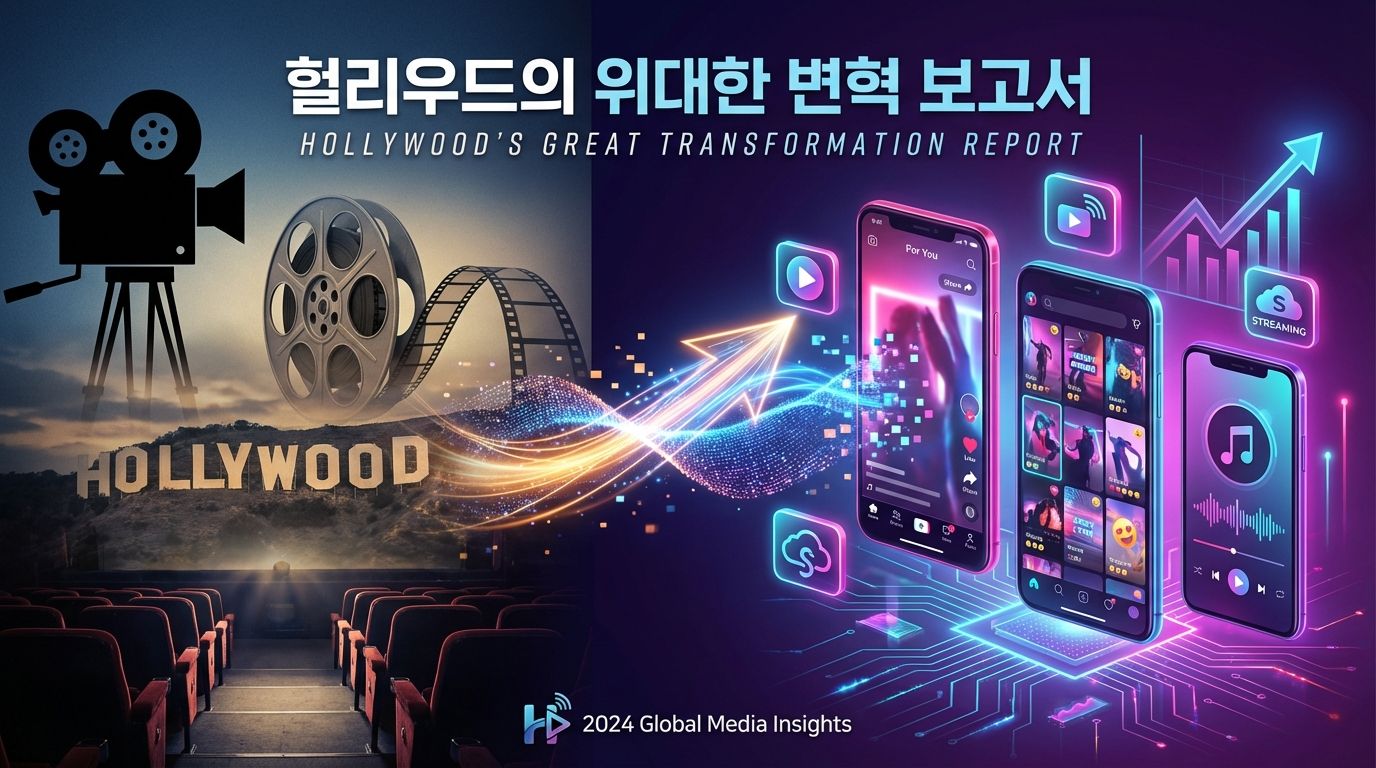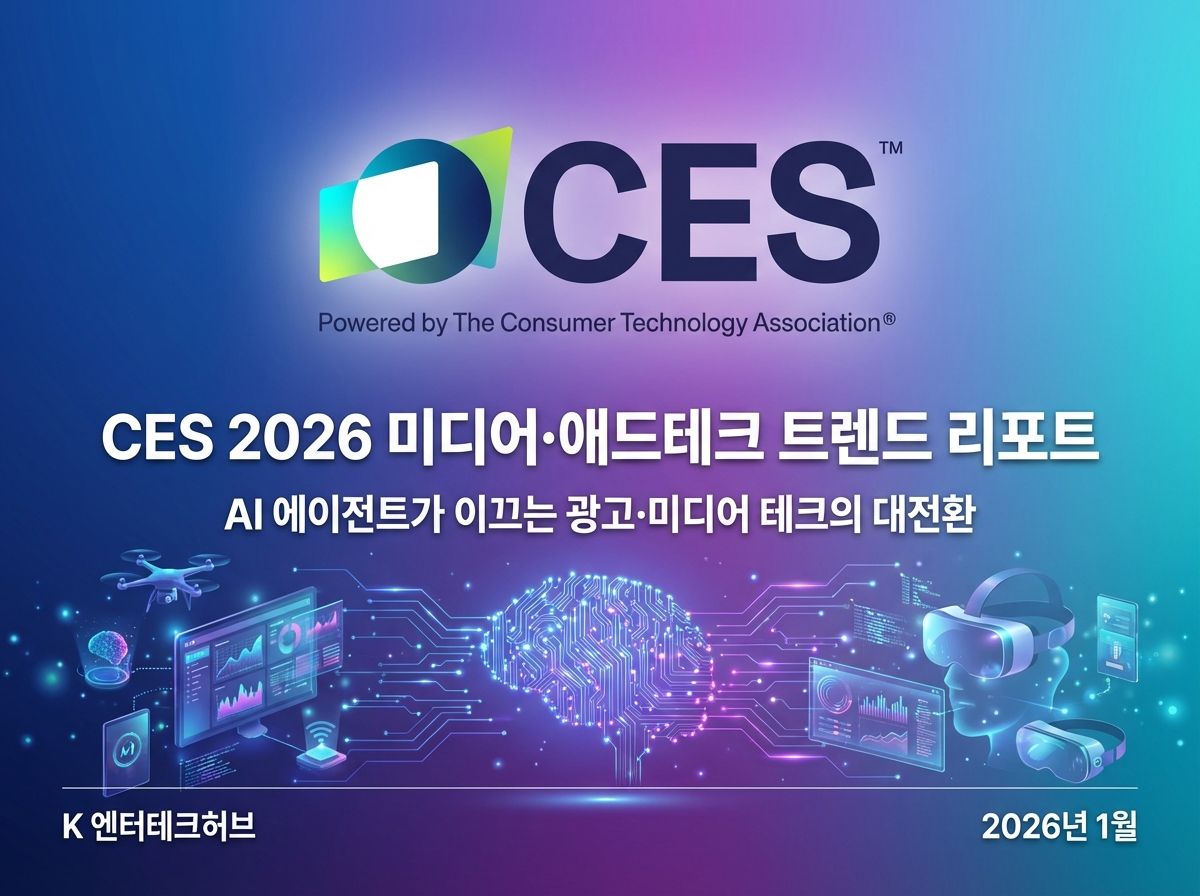Disney-NBCUniversal Blackout Signals New Era in Streaming Power Dynamics – Implications for Korea’s Media Industry
Incident Overview
On November 21, 2024, Fubo—a Disney-backed US virtual MVPD—blacked out all NBCUniversal (NBCU) channels for its 1.63 million subscribers after failing to reach a carriage agreement. The blackout, which included major channels like NBC, NBC Sports, CNBC, Bravo, and Telemundo, is far more than a pricing standoff: it reflects a fundamental shift in the balance of power between content owners and aggregators in the streaming age.
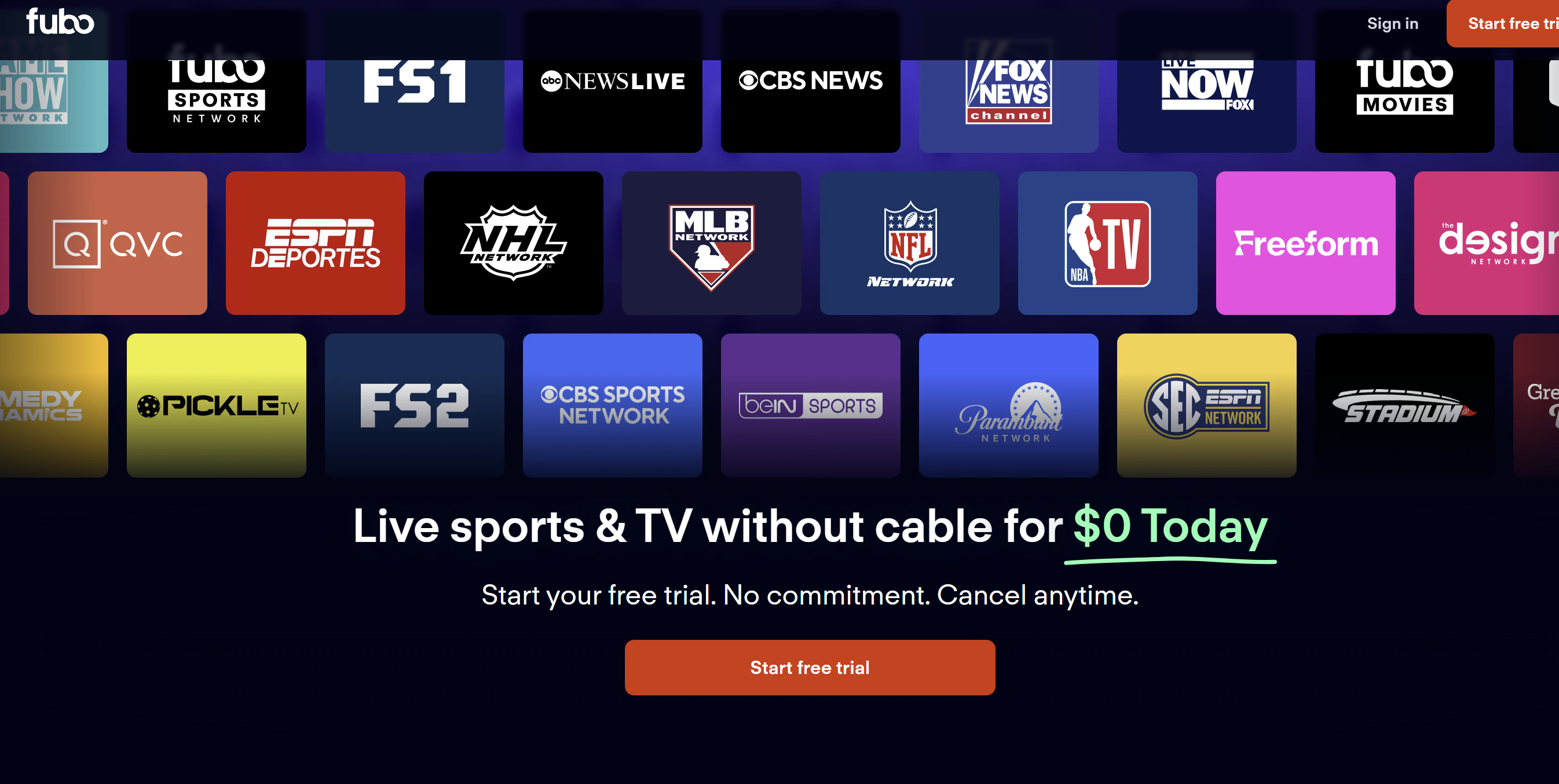
Beyond Fees: Platform Control and Data Access
While at surface level the impasse is about carriage fee terms, the real conflict centers around rights to content ingestion, user data ownership, and strategic control over direct-to-consumer (D2C) versus third-party distribution. NBCU has prioritized its Peacock D2C streaming business, restricting content integration within Fubo’s app, while Fubo is evolving into a “super aggregator” aiming to consolidate external streaming services inside its own ecosystem. Thus, this blackout marks a new ‘platform power war’ as aggregators and rights-holders battle for user relationships and data.
Disney’s Dual Roles and Strategic Triangle
Uniquely, Disney sits on both sides of the negotiating table—as Fubo’s majority shareholder (and Hulu + Live TV operator), it is both an aggregator/distributor and a major content supplier (ESPN, ABC). This triangular standoff between Disney, NBCU, and Fubo fundamentally departs from legacy cable TV fee negotiations, introducing new layers of conflict involving content access, user experience, and commercial leverage.
Implications for Carriage Power and vMVPD Market Shifts
This event exemplifies major realignment in US pay-TV:
- vMVPD Bargaining Leverage now relies on scale, user data, and integrated user experiences, rather than simply feed-in fee negotiations.
- Fubo’s strategy—following its merger with Disney/Hulu + Live TV—is to maximize bargaining power through scale and aggregated service offerings.
- Content access is increasingly determined by the ability to control ingestion and in-app experience, rather than pure fee negotiation.
Sports Content as a Strategic Asset
The blackout notably hit during primetime sports season: major college football and NFL broadcasts were among those lost to Fubo users, underscoring the critical importance of live sports rights in user retention and platform differentiation—an insight echoing globally.
Super Aggregator Model and App Integration
Fubo’s launch of a “Channel Store” mirrors the Amazon Prime Video and Roku Channels strategy, letting users purchase and access a variety of third-party streaming subscriptions from within one platform, without requiring separate apps/logins. Content silos are thus reduced, enhancing user engagement and stickiness—a model rapidly spreading across the US pay-TV and streaming sectors.
Implications for Korean Media Companies
Scale as Bargaining Power
- As in the US, “Most Favored Nation” (MFN) clauses do not guarantee negotiating leverage for small platforms; scale is the critical determinant.
- Industry consolidation (e.g., the ongoing Tving-Wavve merger) reflects the need for Korean OTTs to combine resources and strengthen their position when negotiating with global studios.
Content Aggregation and Data Access
- The future of FAST platforms (ad-supported free streaming) hinges on content ingestion flexibility. Korean providers must secure rights to integrate their channels into international aggregator environments—failure to do so risks lowered reach and revenue.
Direct vs Indirect Distribution
- Korean content owners should optimize the balance between D2C channels (for revenue and data) and third-party distribution (for reach). The ongoing global OTT arms race will further intensify the need for this strategic balance.
Sports and “Must-Carry” Content
- High-value sports rights remain a critical driver of subscriber retention. As seen with Fubo, platforms deprived of key sports content face existential risk—Korean streamers must similarly prioritize exclusive and differentiated offerings.
Conclusion: A New Era of Negotiation and Platform Competition
The Disney-NBCU blackout highlights how the streaming era has transformed negotiations from simple carriage fee disputes into complex power struggles over data, content control, UI/UX, and service aggregation. For Korean media and streaming firms, the path forward lies in building scale, securing flexible distribution rights, differentiating content, and adopting a holistic view of the value chain that integrates direct and indirect delivery with user-focused technological innovation.
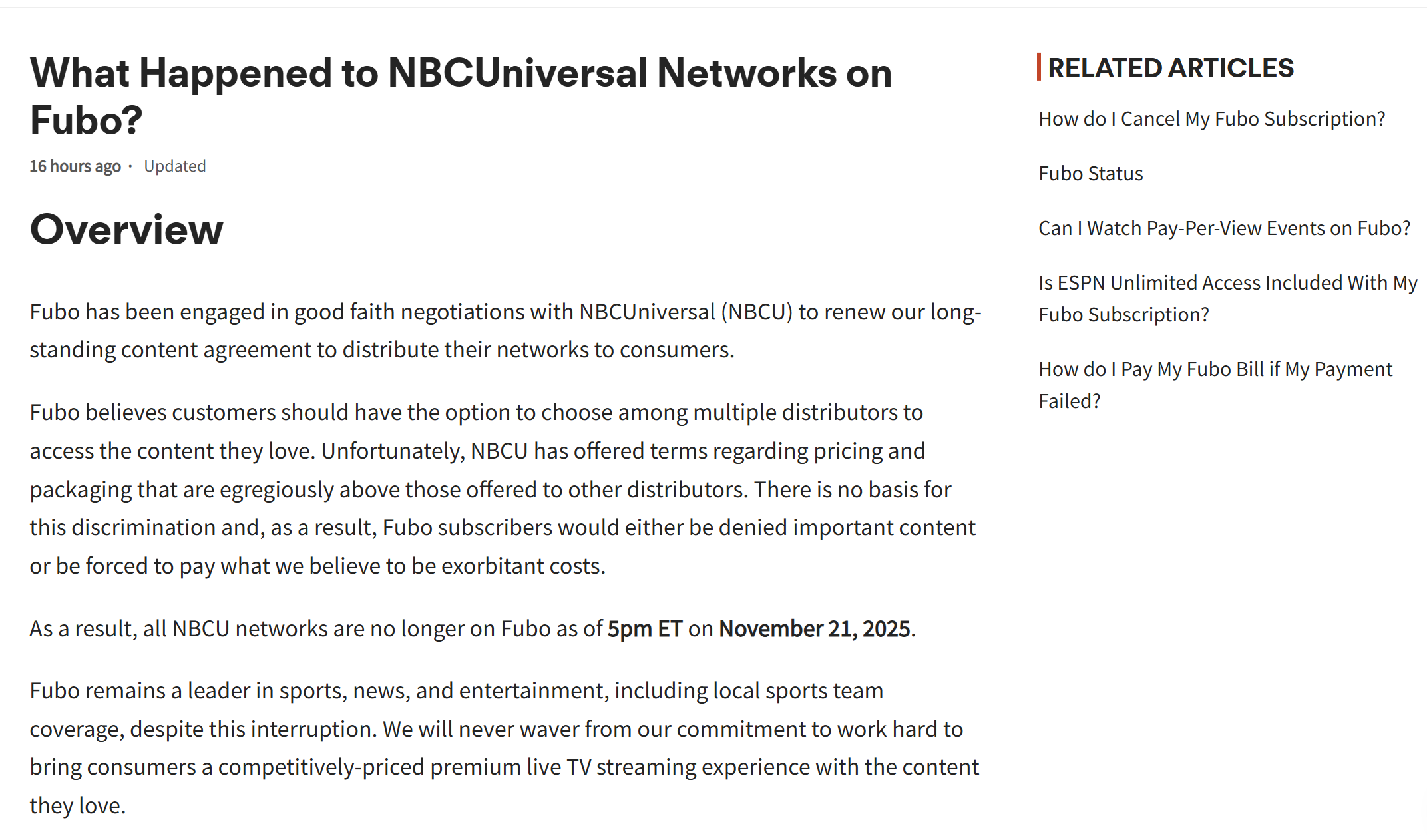
"'규모 기반 최혜국 대우'의 시대: 디즈니-NBCU 분쟁이 한국 미디어에 던지는 질문"
디즈니-NBCU 콘텐츠 블랙아웃 분쟁, 스트리밍 시대 유료방송 협상 구도의 변화와 한국 미디어 업계 시사점
가상 유료 방송 사업자(vMVPD) 시장 재편 속 콘텐츠 협상력 경쟁 본격화
디즈니 산하 vMVPD(가상 다채널 유료방송) 푸보(Fubo)에서 NBC유니버설(NBCUniversal) 계열 전 채널이 블랙아웃(Blackout)에 돌입하며 163만 가입자가 하루아침에 시청권을 잃었다. 2024년 11월 21일(미 동부 시각) 발생한 이번 사건은 단순한 송출료 협상 결렬을 넘어, 스트리밍 시대 콘텐츠 유통 질서를 근본적으로 뒤흔드는 신호탄으로 평가된다.
표면적으로는 푸보와 NBCU 간 가격·조건 협상의 실패이지만, 실제로는 플랫폼 내 콘텐츠 수용권한(Content Ingestion)과 사용자 데이터 통제권, 나아가 D2C(Direct-to-Consumer)와 간접 배급의 전략적 우위를 둘러싼 복합 갈등이다. NBCU가 자사 스트리밍 서비스 ‘피콕(Peacock)’ 중심의 직접 배급 체제를 강화하며 푸보의 앱 내 콘텐츠 인제스션을 거부한 반면, 푸보는 ‘채널 스토어(Channel Store)’와 슈퍼 애그리게이션(Super Aggregation) 전략을 통해 외부 스트리밍 서비스를 통합 유통하는 구조를 추진해왔다. 결과적으로 이번 블랙아웃은 플랫폼 주도권을 둘러싼 스트리밍 업계의 새로운 ‘권력 전쟁’이다.
디즈니의 이중적 위치 또한 주목된다. 디즈니는 푸보의 최대 주주로서 배급사 입장에서 NBCU와 협상해야 하지만, 동시에 ESPN과 ABC 등 자사 채널의 공급자로서 콘텐츠 단가를 높이려는 이해관계를 갖고 있다. 콘텐츠 공급자이자 유통사로서의 디즈니, D2C를 강화하는 NBCU, 슈퍼 애그리게이션으로 맞서는 푸보의 삼각 구도는 전통적 케이블TV 시대의 단순 ‘송출권 협상’을 완전히 다른 국면으로 이끌고 있다.
이번 사태는 미국 유료방송 시장의 구조적 재편 속에서 vMVPD 사업자들의 협상력 변화와 콘텐츠 전략의 변곡점을 상징한다. 급등하는 스포츠 중계권 비용과 분산된 스트리밍 소비환경 속에서, 푸보가 디즈니와 합병을 택한 배경도 결국 ‘규모 기반 협상력(Size-based leverage)’에 있다. 규모의 경제와 콘텐츠 결합이 곧 협상력으로 직결되는 시대, 플랫폼 간 힘의 균형은 가입자 수, 데이터 통제력, UX(사용자 경험) 통합 능력에 따라 재편되고 있다. 상대적으로 소규모 사업자인 푸보가 이번 협상을 통해 ‘디즈니의 규모’를 지렛대로 삼을 수 있을지가 관전 포인트다.
한국 미디어 산업에도 시사점은 크다. 첫째, 규모의 경제가 협상력의 핵심이라는 점에서 티빙(Tving)-웨이브(Wavve) 합병 구도나 국내 유료방송-OTT 통합 논의가 한층 가시화될 가능성이 있다. 둘째, 콘텐츠 인제스션 이슈는 한국 FAST(Free Ad-supported Streaming TV) 산업의 글로벌 플랫폼 진출 시 협상 단서로 주목받을 것이다. 특정 플랫폼이 인제스션을 제한할 경우 국내 채널의 도달률과 광고 수익은 직접적인 타격을 받을 수 있다. 셋째, 콘텐츠 제작사와 배급사의 경계가 무너지고 있는 만큼, 한국 미디어 기업 또한 밸류체인 전반을 통합적으로 재설계할 필요가 있다.
결국 이번 디즈니-NBCU 콘텐츠 블랙아웃은 스트리밍 전환기 유료방송 협상 구조의 본질적 변화를 드러낸다. 콘텐츠 유통 경쟁은 가격 전쟁이 아니라 ‘플랫폼 내 존재 방식’과 ‘사용자 경험 통제권’을 둘러싼 기술·시장 혼합형 협상으로 진화하고 있다. 글로벌 미디어 산업은 물론, 한국 콘텐츠 기업들까지 콘텐츠·플랫폼·데이터를 종합적으로 바라보는 협상 전략이 절실한 시점이다.
사건 개요: 163만 가입자, NBC 계열 전 채널 시청 불가
미국 동부시간 2024년 11월 21일 오후 5시, 디즈니(Disney) 산하 가상 다채널 영상 프로그램 배급사업자(vMVPD, virtual Multichannel Video Programming Distributor)인 푸보(Fubo)에서 NBC유니버설(NBCUniversal, 이하 NBCU) 계열 전 채널에 대한 블랙아웃(Blackout)이 발생했다.
이번 송출 중단으로 영향을 받은 채널은 NBC 지역 방송 계열사, NBC 스포츠(NBC Sports) 지역 스포츠 채널, CNBC, 브라보(Bravo), 텔레문도(Telemundo) 등 NBCU 케이블 채널은 물론, 분사 기업 버산트(Versant) 산하의 MS NOW, 골프 채널(Golf Channel)까지 포함된다. 푸보의 163만 가입자 전원이 해당 채널들을 시청할 수 없게 된 것이다.
푸보는 고객 지원 페이지를 통해 공식 입장을 밝혔다. "NBCU가 다른 배급사(Distributor)에 제시한 것과 비교해 터무니없이 높은 가격과 패키징 조건을 요구하고 있다. 이러한 차별에는 근거가 없으며, 이로 인해 푸보 가입자들이 중요한 콘텐츠를 이용하지 못하거나 과도한 비용을 부담해야 하는 상황에 처하게 됐다."
반면 NBCU는 정면으로 반박했다. "푸보가 수백 개의 다른 배급사와 동일한 조건을 제시받았음에도 NBCUniversal 프로그램을 중단하기로 결정했다. 불행히도 이는 푸보의 전형적인 행태다. 최근 몇 년간 여러 네트워크를 중단해 고객들이 계속해서 콘텐츠를 잃고 있다."
푸보의 반복되는 송출권(Carriage) 분쟁 이력
NBCU의 주장처럼 푸보는 송출권 협상에서 강경한 태도를 보여온 전력이 있다. 2020년 이후 최소 10건의 송출권 분쟁으로 채널 중단 사태를 겪었다. 디스커버리 네트웍스(Discovery Networks), AMC 네트웍스(AMC Networks), A+E 네트웍스(A+E Networks) 등 주요 엔터테인먼트 채널 사업자들과의 협상이 결렬되면서 해당 채널들이 푸보 라인업에서 빠졌다.
다만 이를 단순한 협상 실패로만 볼 수는 없다. 푸보는 창립 초기부터 라이브 스포츠 중심 전략을 내세워왔고, 엔터테인먼트 채널과의 결별은 전략적 선택의 측면도 있다. 스포츠 중계권 확보에 자원을 집중하고, 상대적으로 시청률이 낮은 엔터테인먼트 채널에 대한 비용을 줄이겠다는 판단이었다.
그러나 이번 NBCU와의 분쟁은 성격이 다르다. NBCU는 NFL, 프리미어리그, 올림픽 등 핵심 스포츠 콘텐츠를 보유한 사업자다. 푸보의 핵심 경쟁력인 스포츠 라인업에 직접적인 타격을 주는 블랙아웃인 셈이다.
콘텐츠 인제스션(Content Ingestion) 이슈: 단순 가격 협상을 넘어선 유통 구조 갈등
이번 분쟁에서 특히 주목할 점은 콘텐츠 인제스션(Content Ingestion) 이슈다. 사실 업계에서는 중요 이슈엿지만 미디어 분석가 필 스완(Phil Swann)에 따르면, NBCU는 다른 스트리밍 플랫폼들에게는 자사 스트리밍 서비스 피콕(Peacock) 콘텐츠를 해당 플랫폼 서버에 직접 수용(인제스트)할 수 있도록 허용하고 있다. 이렇게 하면 사용자가 피콕 앱으로 리디렉션되지 않고도 해당 플랫폼 내에서 콘텐츠를 시청할 수 있다.

